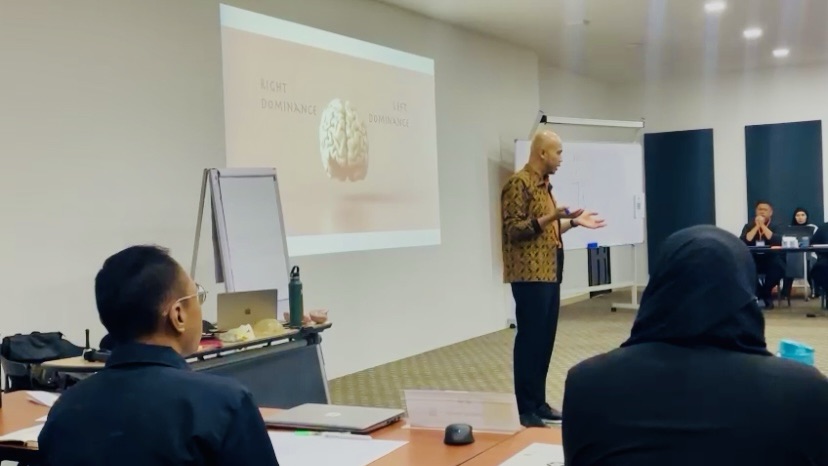I still vividly remember my very first presentation as a Ph.D. student in Japan. It was in 2010, my first year, and I had been selected to present at the Kanto Region Epilepsy Conference. I was nervous, of course, but also excited. It was a huge opportunity to present my research to a group of experts. Being a foreigner, I naturally assumed I would be delivering my presentation in English. However, my supervisor had a different plan. He told me I needed to present in Japanese, a language I had only just begun to learn.
The slides could stay in English, but I was expected to stand in front of a room full of Japanese professionals and speak their language, not mine. It was daunting, to say the least. I wasn’t just nervous anymore, I was overwhelmed. But instead of letting me face this challenge alone, my supervisors stepped up in a way that I will never forget.
What followed was an intense week of preparation. Every evening from Monday to Friday, I had to rehearse in front of my supervisors. We started at 7 PM, and the sessions often stretched into the midnight. They didn’t just correct my general approach or point out big errors; they corrected every single word I spoke. Imagine that! Every word I uttered was scrutinized, corrected, and rehearsed again. I won’t lie, it was exhausting and at times, deeply frustrating. I often felt like I would never get it right.
But then, something profound dawned on me. While I was focusing on my own frustrations and struggles, I began to realize the incredible dedication my supervisors were showing. They were spending their evenings, their personal time, sitting in front of me, guiding me through every word, every phrase, every nuance. They were investing in me, in my growth, and in my success. Their commitment to my development was something I’ve carried with me ever since.
On the day of the conference, I wish I could say I delivered a perfect presentation, but the truth is, I didn’t. I was still nervous, so nervous, in fact, that I relied more heavily on my notes than I would have liked. But even so, that presentation was a pivotal moment in my academic journey. It wasn’t just about speaking Japanese in front of an audience; it was about learning to face discomfort, to push beyond my limits, and to see challenges as opportunities for growth.
That experience taught me something valuable about nerves and confidence. We often think that some people are simply confident, while others are prone to anxiety. But what I’ve learned is that confidence is not something you’re born with it’s something you develop. The more experiences you gather, the better you become at managing your nerves. The first few times you do something new, it will always feel difficult. But with practice, what once terrified you becomes routine. The fear fades, and what’s left is a sense of ease and even joy.
But this leads to another important question: how do we gain these experiences? After all, we don’t get invited to speak at conferences every day. I certainly didn’t. So how do we continue to build confidence when the opportunities to practice seem limited?
For me, the answer has always been “image training,” or what some might call visualization. I imagine myself standing in front of an audience, speaking with confidence and clarity. I mentally rehearse the flow of my words, the tone of my voice, even the reactions of the audience. It might sound simple, but this practice has helped me tremendously. It allows me to walk into a room feeling prepared, even if it’s my first time there. And over time, I’ve found that this kind of mental preparation makes all the difference.
I used this very technique recently when I delivered a one-day session on neuroleadership for the Royal Brunei Police Force as part of the EDPMMO Program by Universiti Brunei Darussalam. Just like in Japan all those years ago, I was nervous at first. But by visualizing the session in advance, I felt more in control, more at ease, and ultimately, I had fun. And that’s something I’ve come to realize over the years, preparation doesn’t just help you avoid mistakes; it helps you enjoy the process.
Looking back, that first presentation in Japan wasn’t just about mastering a language or delivering a talk. It was a lesson in persistence, gratitude, and growth. It taught me that with the right mindset and support, we can rise to challenges that once seemed impossible. And it reminded me that every step, no matter how small, is part of a much larger journey toward success.
I often share this story with my students and colleagues, not because it’s extraordinary, but because it’s a reminder that every challenge we face is an opportunity to grow. We don’t have to be perfect; we just have to be willing to learn. And as I continue my own journey in academia and beyond, I’m grateful for all the experiences that have shaped me, and for the people who believed in me when I was still learning to believe in myself.



